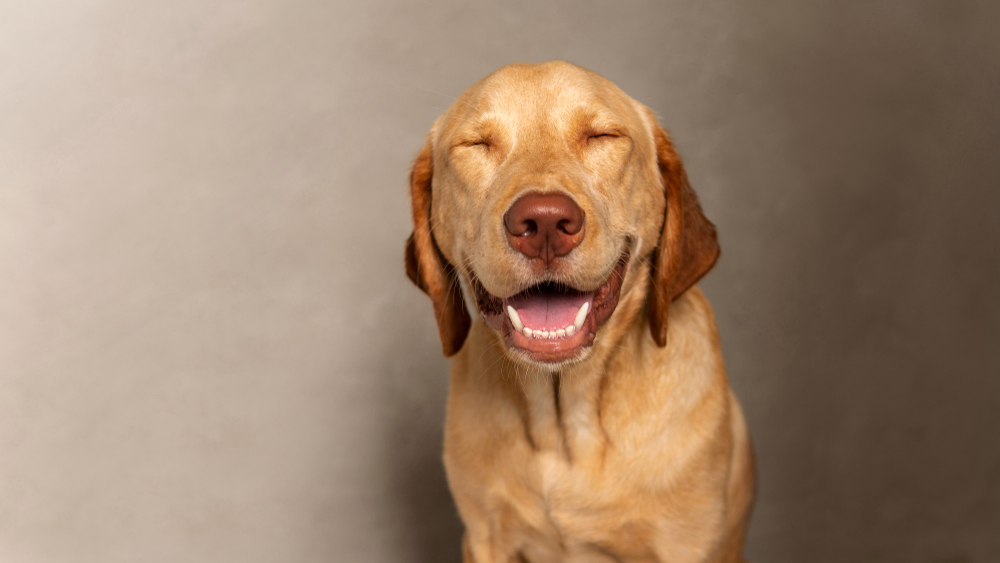Oral health plays a vital role in the overall well-being of our pets. Like humans, animals can also suffer from dental problems that can lead to more severe health issues if not addressed. At Happy Tails Animal Hospital, our team, under the guidance of Dr. Mann, is committed to providing top-notch dental cleaning services to ensure your pet’s oral hygiene is at its best.
Symptoms Indicating the Need for Dental Cleaning
- Bad breath that persists
- Visible tartar or plaque buildup on teeth
- Red, swollen, or bleeding gums
- Loose or missing teeth
- Difficulty chewing or dropping food
Why is Dental Cleaning Needed?
- Oral Health: Regular dental cleanings help prevent the buildup of plaque and tartar, which can lead to periodontal disease.
- Overall Health: Dental problems can lead to other health issues, including heart, liver, and kidney diseases, due to the spread of bacteria.
- Comfort: Dental issues can be painful. Cleaning alleviates discomfort, ensuring your pet’s mouth remains pain-free.
Treatment Process
- Preliminary Examination: Dr. Mann will commence with a comprehensive oral examination and take dental radiographs (rads) to evaluate the deeper structures of your pet’s teeth and underlying bone.
- Anesthesia: To ensure your pet’s safety and minimize any discomfort, general anesthesia will be administered prior to the dental procedure.
- Cleaning: Employing specialized dental tools, Dr. Mann will meticulously scale the teeth, eradicating tartar and plaque both above and below the gumline.
- Polishing: Post-cleaning, the teeth will undergo a polishing process, resulting in a smooth tooth surface which reduces the chances of plaque accumulation.
- Post-Cleaning Examination: After the cleaning and polishing are complete, Dr. Mann will carry out a final inspection, identifying any additional dental concerns or treatments, such as potential extractions.
Maintaining Your Pet’s Oral Health: Essential Preventative Measures
Consistent and regular veterinary check-ups are one of the cornerstones of safeguarding your pet’s oral health. These routine visits play an instrumental role in early identification and prompt addressing of any budding dental issues. It’s always better to catch and manage potential problems in their infancy rather than letting them escalate to more severe stages.
In addition to professional vet visits, pet owners can take several proactive steps at home. Regular brushing, using pet-specific toothpaste, can substantially decrease the risk of dental diseases. Moreover, offering dental chews and toys not only entertains your pet but also contributes to reducing plaque and tartar buildup. Lastly, a quality, balanced diet acts as the first line of defense against dental complications, ensuring their teeth and gums remain in optimal condition.
The Long-term Impact of Regular Dental Care for Pets

Committing to regular and consistent dental care for pets is the key to ensuring they lead a healthier and more comfortable life. This meticulous attention to their oral health helps avert severe dental complications that could compromise their quality of life. Such proactive measures, in the long run, prove beneficial both in terms of pet health and the potential costs associated with it.
The significance of oral hygiene transcends mere dental health; it’s intertwined with a pet’s overall well-being. When dental issues go unnoticed or untreated, they can spiral into complications affecting other body systems. Therefore, a preventive approach, characterized by regular dental check-ups and cleanings, is not just a recommendation but a necessity. It’s a proactive strategy that often proves to be more economical and less strenuous than addressing advanced dental problems.
Frequently Asked Questions
How often should my pet have a dental cleaning?
Regular dental check-ups are recommended at least once a year. However, the frequency might vary based on your pet’s specific needs and oral health condition. Dr. Mann can provide guidance tailored to your pet during a consultation.
Is dental cleaning under anesthesia safe for my pet?
Yes, administering anesthesia ensures that the dental cleaning is thorough and that your pet is comfortable throughout the process. At Happy Tails Animal Hospital, we take every precaution to ensure your pet’s safety during procedures involving anesthesia.
Can I brush my pet’s teeth at home between professional cleanings?
Absolutely! Regular brushing at home with pet-specific toothpaste can greatly benefit your pet’s oral health and reduce plaque buildup. If you’re unsure about the best techniques or products, our team is always available to provide recommendations.
Ensure Your Pet’s Dental Health Today
For a comprehensive dental cleaning and a dedicated approach to veterinary medicine, trust Dr. Mann and the team at Happy Tails Animal Hospital in Renton, WA. Don’t wait for dental issues to escalate; call us at (425) 254-2779 to schedule an appointment. Your pet’s health and comfort are our top priorities.


